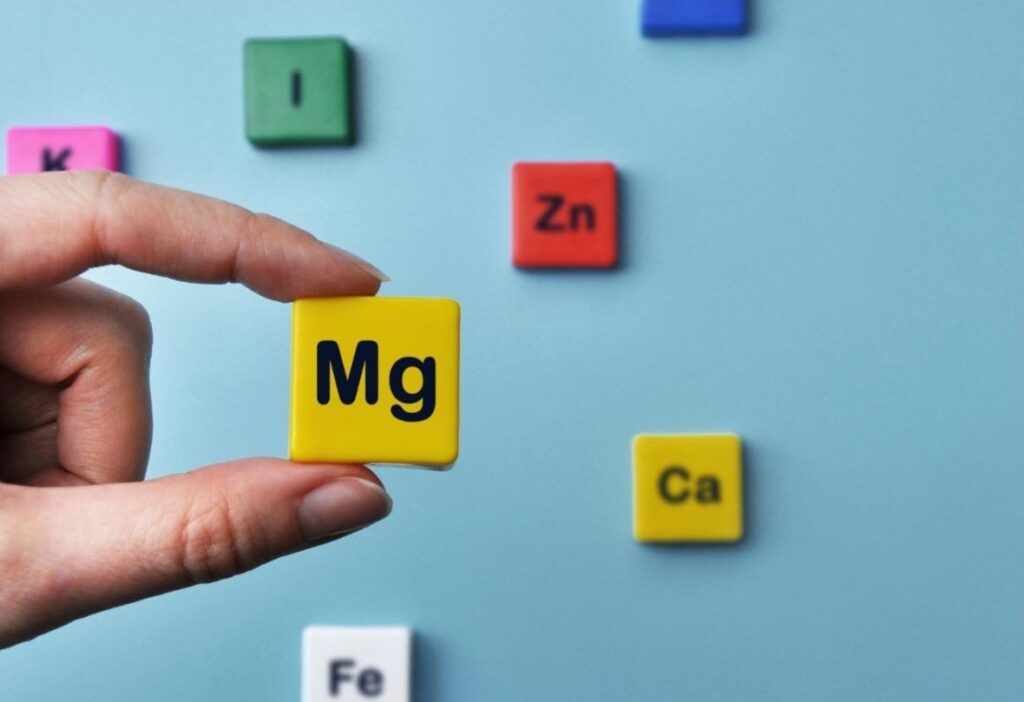Table of Contents
Introduction
Hormones are essential chemical messengers that significantly influence mental, physical, and emotional health, playing a pivotal role in the well-being of middle-aged women. Hormonal imbalances can lead to a spectrum of symptoms, from weight gain and fatigue to more specific issues like irregular periods and headaches, significantly impacting quality of life. For those exploring how to balance hormones, particularly during menopause, understanding the causes of hormonal imbalance is crucial, which can range from stress and certain medical conditions to menopause itself. Addressing how to balance hormones naturally, we’ll delve in this article into 8 key minerals and practices beneficial for middle-aged women, especially those navigating the challenges of menopause. With an approach that encompasses dietary adjustments, regular exercise, and stress management, the article serves as a comprehensive guide to achieving hormonal balance through natural means. It highlights not only the importance of a nutrient-rich diet and lifestyle changes but also the impact of specific supplements and herbs on hormonal health.
Magnesium
Essential Roles and Benefits of Magnesium
- Biochemical Reactions: Magnesium is crucial for over 300 enzymatic reactions in the body, including muscle and nerve function, protein synthesis, and blood pressure regulation. It also enhances the absorption of calcium and is vital for bone health.
- Hormonal Balance: This mineral aids in calming the HPA axis, supporting the balanced production of sex hormones, and correcting thyroid hormone imbalances. Its role in hormonal health is extensive, influencing everything from insulin sensitivity to cortisol and thyroid hormone levels.
- Deficiency Concerns: A significant portion of the U.S. population, approximately 80%, is deficient in magnesium. Factors contributing to this include poor dietary choices, modern farming practices, and high use of sugar and caffeine.
- Symptoms of Deficiency: The lack of sufficient magnesium can lead to a range of symptoms including fatigue, headaches, anxiety, insomnia, and more severe conditions like kidney stones and palpitations.
- Supplementation Benefits: Using supplements like magnesium glycinate, which is highly bioavailable and gentle on the stomach, can improve various health aspects. These include bone health, muscle function, nerve transmission, and even mental health by reducing anxiety and enhancing sleep quality.
- Support for Menopause and Beyond: Magnesium is particularly beneficial for middle-aged women, helping to manage menopause symptoms such as hot flashes and night sweats. It also supports thyroid function and helps manage blood sugar levels, which can be particularly beneficial for women with PCOS.
- Additional Health Benefits: Regular intake of magnesium can also aid in reducing cravings, balancing blood sugar, and decreasing the risk of long-term complications like osteoporosis. It even plays a role in managing conditions like restless leg syndrome and improving overall sleep quality.

Calcium
Essential Roles and Benefits of Calcium
- Hormonal Regulation and Absorption: Calcium absorption is influenced by hormones like estrogen and parathyroid hormone (PTH), along with 1,25-dihydroxyvitamin D3. These hormones play a critical role in managing true fractional calcium absorption (TFCA), a precise measure of calcium uptake.
- Dietary Influences on Absorption: Factors affecting calcium absorption include age, renal function, and dietary intake of protein, fat, fiber, and especially vitamin D. Obesity also impacts hormone levels that regulate calcium absorption, with variations in serum levels of 25OHD and 1,25(OH)2D3.
- Calcium for Bone Health: In women, 99% of calcium is stored in bones, crucial for maintaining bone density and overall skeletal health. The remainder aids in vital functions like nerve transmission, muscle contraction, and blood clotting.
- Recommended Daily Allowance: The RDA for calcium is 1,000 mg/day for women aged 19-50 and increases to 1,200 mg/day for women over 51, including those pregnant or lactating.
- Sources of Calcium: Calcium-rich foods include dairy products, leafy greens like kale and broccoli, and fortified products such as almond milk and tofu processed with calcium sulfate.
- Management of Bone Loss: Despite calcium’s role, it alone does not completely prevent bone loss, and leads to osteoporosis, particularly post-menopause when hormone levels that help preserve bone decrease. For those diagnosed with osteoporosis, over-the-counter supplements are recommended, with intake spaced to no more than 500 mg at a time.
- Safety Upper Limits: The upper intake limit for calcium is set at 2,500 mg daily from all sources to prevent potential negative effects.
Zinc
Essential Roles and Benefits of Zinc
- Hormonal and Reproductive Health: Zinc is critical for the metabolism of testosterone and the synthesis of DNA, which are vital for the reproductive system’s health. It aids in the conversion of thyroid hormone T4 to T3 and balances cortisol, estrogen, and progesterone levels, crucial for hormonal regulation.
- Immune Function and Wound Healing: This mineral supports the immune system by enhancing the production of cells like neutrophils and lymphocytes, and it plays a significant role in wound healing processes.
- Support During Menopause: Zinc is necessary for aromatase activity, crucial for converting androgens into estrogens during menopause, thereby helping maintain hormonal balance as the body undergoes significant changes.
- Bone Health and Menstrual Concerns: It also addresses issues like poor bone density and problematic menstrual cycles. Zinc deficiency can lead to more painful and heavier periods and is linked with the development of uterine fibroids.
- General Health Benefits: Beyond reproductive and hormonal health, zinc is essential for taste, smell, sight, and hearing. It helps maintain skin and mucous membrane health, protecting barrier functions.
- Dietary Sources: To meet the daily zinc requirement, women should consider foods such as fortified cereals, yeast-fermented breads, wheat germ, pumpkin seeds, and various dairy products like yogurt and cheese.

Iron
Essential Roles and Benefits of Iron
- Hormonal Influence and Menstrual Health: Iron plays a pivotal role in women’s health, especially due to the iron loss during menstruation. Women aged 19 to 50 require more than double the iron compared to men due to this loss. After menopause, women’s iron requirements decrease to levels similar to men’s as menstrual bleeding ceases.
- Impact on Hormonal Balance: Fluctuating iron levels can significantly affect hormonal health. High iron levels can lead to inflammation and increase the risk of thyroid disease, while low levels can also disrupt thyroid function and cause other hormonal imbalances.
- Iron Deficiency and Women’s Health: Iron deficiency is notably prevalent among pre-menopausal women, making them the most at-risk group. This deficiency can lead to symptoms such as fatigue, depression, and joint pain, which are often associated with hormonal imbalances.
- Regulation and Absorption Challenges: The broad normal reference range for ferritin makes identifying iron deficiency challenging. Additionally, the body’s regulation of iron is complex, influenced by losses of 1-2 mg daily, with an additional loss of 1 mg per day during menstruation.
- Dietary Sources and Recommendations: To combat iron deficiency, women must include iron-rich foods, such as red meat, leafy greens, and fortified cereals. Regular screening for iron levels, especially during menstrual cycle phases, is recommended to ensure adequate iron status.
Selenium
Essential Roles and Benefits of Selenium
- Thyroid Hormone Metabolism: Selenium is indispensable for synthesizing and converting thyroid hormones, including converting inactive thyroid hormone to its active form.
- Antioxidant Protection and Immune Support: As a powerful antioxidant, selenium plays important role in protecting cells from oxidative damage and supports a robust immune system. This trace mineral also aids in reducing inflammation and enhancing overall immune response.
- Reproductive Health: Selenium is crucial for fertility and pregnancy, protecting reproductive tissues from oxidative stress and supporting the healthy development of sperm and eggs. It is also essential for maintaining a healthy hormone balance during pregnancy.
- Cognitive and Mental Health: Adequate selenium intake is associated with improved cognitive function and mental health, helping to alleviate symptoms such as fatigue and mental fog.
- Heart Health: By reducing oxidative stress and inflammation, selenium contributes to heart health, making it an important mineral for overall cardiovascular care.
- Daily Requirements and Sources: The recommended daily allowance for selenium is 55 mcg for adults, increasing to 60 mcg during pregnancy and 70 mcg during breastfeeding. Good dietary sources include Brazil nuts, seafood like tuna, and enriched foods.
- Supplementation Options: Selenium is available in various supplements, either stand-alone or as part of multivitamin formulations, including prenatal formulas specifically designed to support a healthy pregnancy.

Vitamin D
Essential Roles and Benefits of Vitamin D
- Pro-hormone Functions and Bone Health: Vitamin D, a secosteroid pro-hormone, is essential for bone metabolism and maintaining calcium/phosphorus homeostasis. It facilitates calcium absorption, crucial for bone strength and density.
- Support for Menopausal Women: For middle-aged women, particularly those experiencing menopause, Vitamin D helps mitigate bone weakening due to decreased estrogen levels and stabilizes mood variations.
- General Health and Disease Prevention: Beyond bone health, Vitamin D plays a role in cell growth regulation and has anti-proliferative effects on tumor cells. It also enhances immune function and reduces inflammation, which lowers the risk of chronic diseases such as type 2 diabetes, heart disease, and certain cancers.
- Hormonal Impact and Regulation: Vitamin D is integral in regulating enzymes that synthesize and metabolize estrogen, influencing overall hormone balance. This regulation helps mitigate menstrual irregularities and other hormone-related symptoms.
- Cognitive and Physical Health: Adequate levels of Vitamin D are linked to improved cognitive function and physical performance, particularly in aging populations where deficiency is common.
- Recommended Intake and Sources: The recommended daily allowance (RDA) for Vitamin D is 600 IU for individuals up to 70 years old and 800 IU for those older, with an emphasis on supplementation during months with limited sunlight exposure. Sources include sunlight, fortified foods, and dietary options like fatty fish and mushrooms.
- Vaginal and Reproductive Health: Vitamin D contributes to the health of vaginal epithelium by promoting cell proliferation and differentiation, which is crucial for maintaining the physical barrier of the vagina.
- Enhancement of Cancer Treatments: It has been noted that Vitamin D can increase the effectiveness of both radiotherapy and chemotherapy, providing a potential adjunctive benefit in cancer treatment strategies.
Iodine
Iodine is pivotal for the production and regulation of thyroid hormones, specifically thyroxine and triiodothyronine, which are essential for maintaining normal metabolic functions. This mineral is absorbed through an active transport mechanism mediated by the sodium iodide symporter, which is also responsible for iodide absorption in the stomach, salivary gland, and lactating mammary gland. Despite the general iodine sufficiency in the US, there has been a noted decrease in dietary iodine intakes since the 1970s, particularly affecting vulnerable groups like women of reproductive age.
Key Roles and Health Implications of Iodine
- Thyroid Health: Essential for the synthesis and conversion of thyroid hormones, iodine maintains thyroid gland integrity and influences metabolic rates.
- Reproductive Health: Iodine plays a critical role in fetal brain development during early pregnancy, with deficiency leading to severe neurodevelopmental deficits.
- Cancer Risk: Inadequate iodine levels can increase the predisposition to breast, endometrial, ovarian, and thyroid cancers due to competition for iodine between the breasts and the thyroid gland.
- Dietary Sources: Primarily found in seafood, seaweed, dairy products, and foods made with iodized salt. The iodine content in these foods can vary based on their origin and preparation.
Iodine Deficiency and Its Consequences
- Neurological Impairment: Deficiency during pregnancy impairs neurological development, leading to irreversible brain damage and mental retardation.
- Thyroid Dysfunction: Can result in hypothyroidism, disrupting metabolic functions and leading to symptoms like goiter, fatigue, and weight gain.
- Menstrual and Fertility Issues: Women who are planning to become pregnant, are pregnant, or breastfeeding need higher iodine levels to support reproductive health.
Preventive Measures and Recommendations
- Iodized Salt Usage: In regions like Australia, iodized salt is added to commercial bread products to enhance iodine intake.
- Awareness and Education: There is a need for increased public awareness about the importance of adequate iodine intake, especially among women of reproductive age.
By understanding the critical roles of iodine and the health risks associated with its deficiency, individuals can make informed dietary choices to ensure adequate intake and prevent associated health issues.
Omega-3 Fatty Acids
Essential Benefits of Omega-3 Fatty Acids
- Hormonal Balance in PCOS: Omega-3 supplementation may help control Polycystic Ovary Syndrome (PCOS) by reducing oxidative stress and balancing FSH and testosterone levels.
- Menstrual Health: Omega-3 fatty acids can help balance hormones due to their anti-inflammatory properties, which are beneficial in reducing inflammation associated with menstrual pain and cramps.
- Dietary Deficiency Concerns: Modern diets often lead to omega-3 deficiency, contributing to hormonal imbalances, menstrual pain, and increased risk of chronic diseases.
- Overall Health Benefits: Omega-3 fatty acids are essential for brain, skin, and eye development and are linked to a reduced risk of breast cancer, postpartum depression, and cardiovascular disease.
- Cardiovascular Support: Omega-3 supplements support heart health by lowering triglyceride levels, improving overall cholesterol levels, decreasing blood pressure, and helping fight inflammation.
- Hormone Production and Stability: Omega-3s aid in hormone production, inflammation modulation, and blood sugar stability, which is crucial for maintaining hormonal balance.

Conclusion
Navigating the complex world of hormonal imbalance, particularly for middle-aged women, can be a daunting task, yet the insights shared here lay a robust foundation for adopting a holistic and natural approach. By integrating key minerals and nutrients such as magnesium, calcium, and omega-3 fatty acids into one’s diet, along with emphasizing the importance of a balanced lifestyle that includes regular exercise and stress management, women can empower themselves toward achieving hormonal harmony. The benefits of such natural interventions extend beyond mere symptom management to foster overall well-being and quality of life.
The significance of this holistic approach cannot be overstated, especially when considering the broader implications for women’s health and the potential for preventing more serious conditions related to hormonal imbalances. As we integrate these practices and nutrients into our daily lives, it becomes evident that informed, proactive measures are not only beneficial but essential for maintaining balance and health. While the journey to hormonal balance is deeply personal and can vary widely among individuals, the guidance provided here serves as a valuable starting point for anyone seeking to enhance their well-being naturally.
FAQs
What are the top natural supplements for female hormone regulation? The best natural supplements for balancing female hormones include vitamins B12, B6, and B3. Vitamin B12 is crucial for synthesizing adrenal hormones like adrenaline and cortisol. Vitamin B6 plays a vital role in managing estrogen levels, and Vitamin B3 aids in the detoxification of excess steroid hormones, helping to prevent hormone imbalances.
Which mineral is crucial for maintaining hormonal equilibrium? Magnesium is a key mineral for hormone balance. Although magnesium can be taken as a supplement or applied to the skin via a spray, obtaining magnesium through dietary sources is the most effective method for ensuring hormonal balance.
Can a deficiency in any mineral lead to hormonal imbalances? Yes, a deficiency in Vitamin D can cause hormonal imbalances. Vitamin D regulates the production and activity of the hormones estrogen and progesterone, which are essential for maintaining hormonal equilibrium.
What supplements can help with hormone balance during perimenopause? During perimenopause, when hormonal symptoms indicate an imbalance between estrogen and progesterone, supplements such as wild yam, black cohosh, and red clover extract may be beneficial. These herbs can help adjust the ratio of these hormones and alleviate symptoms associated with perimenopause.





